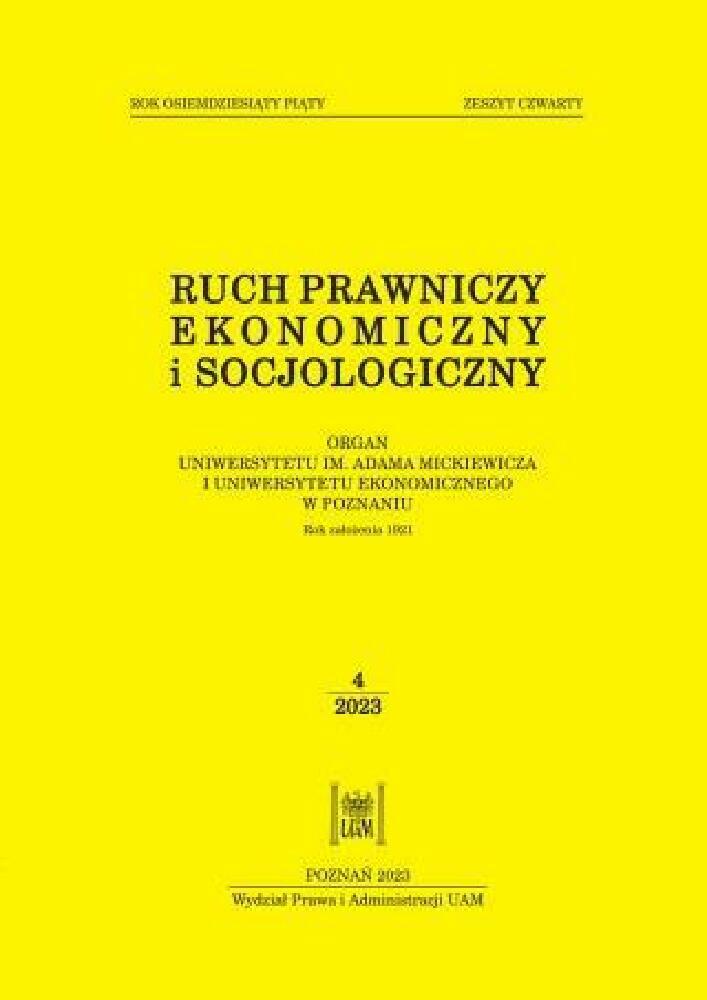Abstract
This article examines major proposals and the constitutionality of a federal wealth tax in the USA. Drawing on historical and comparative research, the author analyzes relevant American political and legal writing on the subject and traces, among other things, numerous opinions on the ‘direct tax’ clauses in the U.S. Constitution, in particular those of the Founding Fathers and the U.S. Supreme Court justices. Calls for a wealth tax, especially a comprehensive federal wealth tax, namely on an entity’s net worth above a certain threshold, are relatively new to the United States. Over the last twenty-five years, however, discussions about such a tax have gained momentum. Historical evidence suggests that this is due to an increase in income and wealth inequalities that has accelerated significantly since the 1980s. As a means to address these inequalities, a wealth tax has gained popularity in academia and among politicians from both ends of the political spectrum. Its supporters point out that excessive wealth concentration is harmful both from a political and an economic point of view. Nevertheless, a wealth tax raises doubts in many respects and would necessarily draw review ultimately by the Supreme Court as to whether a federal wealth tax falls within the scope of the ‘direct tax’ clauses of the U.S. Constitution. A further complication is whether a wealth tax may be subject to ‘apportionment’ among the states based on population, making the adoption of a federal wealth tax difficult, if not impossible to implement.
References
Ackerman, B. (1999). Taxation and the Constitution. Columbia Law Review 99(1): 1-58. DOI: https://doi.org/10.2307/1123596
Ackerman, B., Alstott, A. (1999). The Stakeholder Society. New Haven, London: Yale University Press.
Bahnsen, D.L. (2020). Elizabeth Warren: How Her Presidency Would Destroy the Middle Class and the American Dream. New York: Post Hill Press.
Brooks, J.R., Gamage, D. (2020, 9 January). Why a Wealth Tax Is Definitely Constitutional. https://scholarship.law.georgetown.edu/cgi/viewcontent.cgi?article=3245&context=facpub DOI: https://doi.org/10.2139/ssrn.3489997
Brooks, J.R., Gamage, D. (2022). Taxation and the Constitution, reconsidered. Tax Law Review 76: 75157. DOI: https://doi.org/10.2139/ssrn.4061257
Corwin, E.S. (1950). Court Over Constitution. New York: New York University Press.
Dodge, J.M. (2013). What federal taxes are subject to the rule of apportionment under the Constitution. University of Pennsylvania Journal of Constitutional Law 11(4): 839–956. https://scholarship.law.upenn.edu/jcl/vol11/iss4/2
Einhorn, R.L. (2006). American Taxation, American Slavery. Chicago: The University of Chicago Press. DOI: https://doi.org/10.7208/chicago/9780226194899.001.0001
Epstein, R.A. (2012, 17 January). Death by wealth tax. https://www.hoover.org/research/death-wealth-tax
Fisher, G.W. (1996). The Worst Tax? A History of Property Tax in America. Lawrence, KS: University Press of Kansas.
Fleischer, M.P. (2017). Not so fast: the hidden difficulties of taxing wealth. W: J. Knight, M. Schwartzberg (eds.), Wealth (s. 261–308). Nomos 58. New York: New York University Press.
Friedman, L.M. (2005). A History of American Law. New York: Touchstone.
Glogower, A. (2020). A constitutional wealth tax. Michigan Law Review 118(5): 718-784. DOI: https://doi.org/10.36644/mlr.118.5.constitutional
Glogower, A., Gamage, D., Richards, K. (2021). Why a federal wealth tax is constitutional. February 2021. https://www.repository.law.indiana.edu/cgi/viewcontent.cgi?article=3960&context=facpub
Holmes, G.K. (1893). The concentration of wealth. Political Science Quarterly 8(4): 589–600. https://www.psqonline.org/article.cfm?IDArticle=685 DOI: https://doi.org/10.2307/2140099
Jensen, E.M. (1999). Taxation and the Constitution: how to read the direct tax clauses. The
Journal of Law & Politics 15(4): 687-715. https://scholarlycommons.law.case.edu/faculty_publications/527
Jensen, E.M. (2005). The Taxing Power: A Reference Guide to the United States Constitution. London: Praeger Publishers.
Johnsen, D., Dellinger, W. (2018). The constitutionality of a national wealth tax. Indiana Law Journal 93(1): 111–137. https://www.repository.law.indiana.edu/ilj/vol93/iss1/8/
Johnson, C. (1998). Apportionment of direct taxes: the foul-up in the core of the Constitution. William and Mary Bill of Rights Journal 7(1): 1-160. https://scholarship.law.wm.edu/wmborj/vol7/iss1/2
Kamin, D. (2013). Reducing poverty, not inequality: what changes in the tax system can achieve. Tax Law Review 66(593): 593–640. https://ssrn.com/abstract=2234519
Kamin, D. (2015). How to tax the rich. Tax Notes 146(1): 119-129. https://ssrn.com/abstract=2550936
Kennon, D.R. (1989). The Committee on Ways and Means: A Bicentennial History 1789-1989. Washington: United States House of Representatives.
Kleinbard, E.D. (2016). We Are Better Than This: How Government Should Spend Our Money. Oxford: Oxford University Press.
Lundberg, F. (1968). The Rich and the Super-Rich. New York: Bantam Books.
McKinnon, R. (2012, 9 January). The conservative case for a wealth tax. Wall Street Journal. https://www.wsj.com/articles/SB10001424052970203462304577139232881346686
Natelson R.G. (2015). What the Constitution means by „duties, imposts, and excises” – and „taxes” (direct or otherwise). Case Western Law Review 66(2): 319-322. https://scholarlycommons.law.case.edu/caselrev/vol66/iss2/4 DOI: https://doi.org/10.2139/ssrn.2572633
Piketty, T. (2015). Kapitał w XXI wieku. Tłum. A. Bilik. Warszawa: Krytyka Polityczna.
Ratner, S. (1967). Taxation and Democracy in America. New York: Science Editions John Wiley & Sons, Inc.
Rybarski, R. (2015). Nauka skarbowości. Warszawa: Wydział Prawa i Administracji Uniwersytetu Warszawskiego.
Saez, E., Zucman, G. (2019). The Triumph of Injustice: How the Rich Dodge Taxes and How to Make Them Pay. New York: W. W. Norton & Company.
Sanders, B. (2017). Our Revolution: A Future to Believe In. London: Profile Books Ltd.
Scheuer, F., Slemrod, J. (2021). Taxing Our Wealth. The Journal of Economic Perspectives 35(1): 207–230. DOI: https://doi.org/10.1257/jep.35.1.207
Schultz, W.J., Harris, C.L. (1965). American Public Finance. Englewood Cliffs. New Jersey: Prentice-Hall.
Seligman, E.R.A. (1895). Essays in Taxation. New York: Macmillan and Co.
Seligman, E.R.A. (1911). The Income Tax: A Study of the History, Theory, and Practice of Income Taxation at Home and Abroad. Clark, NY: The Lawbook Exchange.
Semuels, A. (2016). The feudal origins of America’s most-hated tax. The Atlantic. https://www.theatlantic.com/business/archive/2016/08/the-feudal-history-of-property-tax-in-america/497099/
Shakow, D., Shuldiner, R., (2000). A comprehensive wealth tax. Tax Law Review 53: 499–585. https://scholarship.law.upenn.edu/faculty_scholarship/1264
Skwirowski, P. (2022, 4 sierpnia). Polacy praktycznie bez oszczędności. Ciekawe wyniki badania. Rzeczpospolita. https://pieniadze.rp.pl/budzet-rodzinny/art36811451-polacy-praktycznie-nie-maja-oszczednosci-ciekawe-wyniki-badania [dostęp: 28.03.2023].
Tocqueville, A. de (1996). O demokracji w Ameryce. Tom 1. Tłum. B. Janicka, M. Król. Kraków: Wydawnictwo Znak.
Wallace-Wells, B. (2019, 19 October). The French economist who helped invent Elizabeth Warren’s wealth tax. New Yorker. https://www.newyorker.com/news/the-political-scene/the-french-economist-who-helped-invent-elizabeth-warrens-wealth-tax
Warren, E. (2021). Persist. New York: Metropolitan Books.
Williams, S. (2013, 2 November). America’s 5 Most Hated Taxes. https://www.fool.com/investing/general/2013/11/02/americas-5-most-hated-taxes.aspx
Zucman, G. (2015). The Hidden Wealth of Nations: The Scourge of Tax Havens. Chicago, London: The University of Chicago Press. DOI: https://doi.org/10.7208/chicago/9780226245560.001.0001
License
Copyright (c) 2023 WPiA UAM

This work is licensed under a Creative Commons Attribution 4.0 International License.





